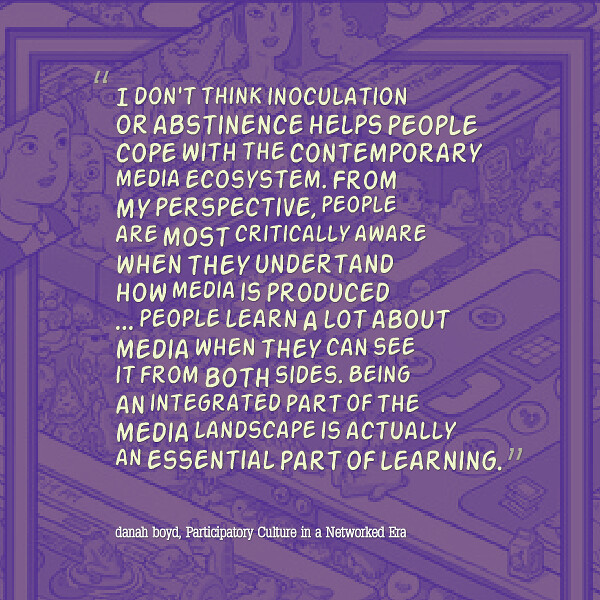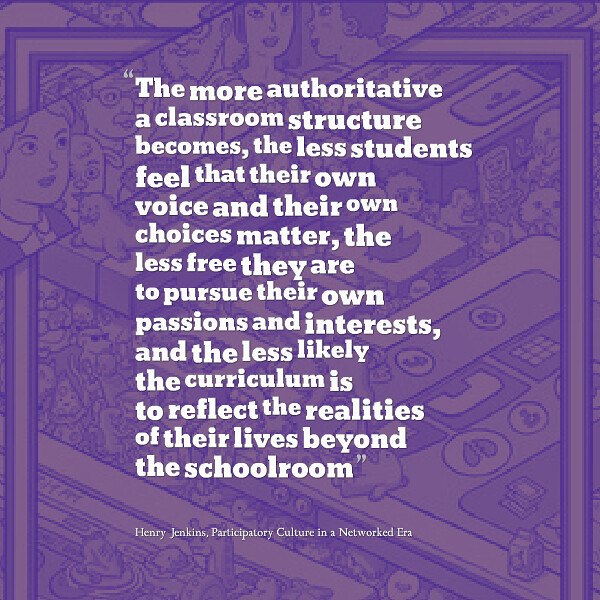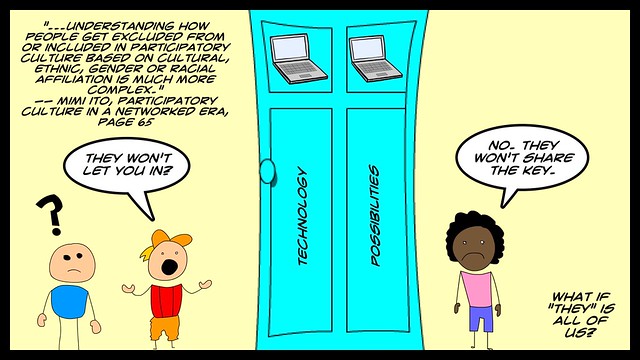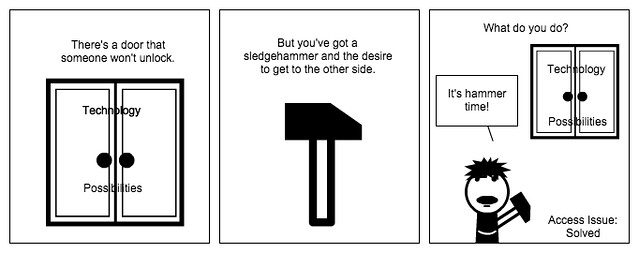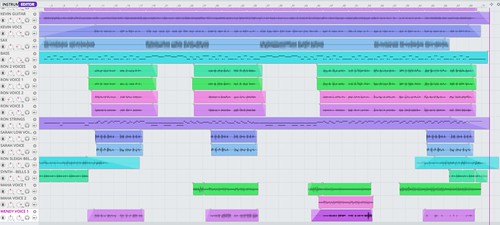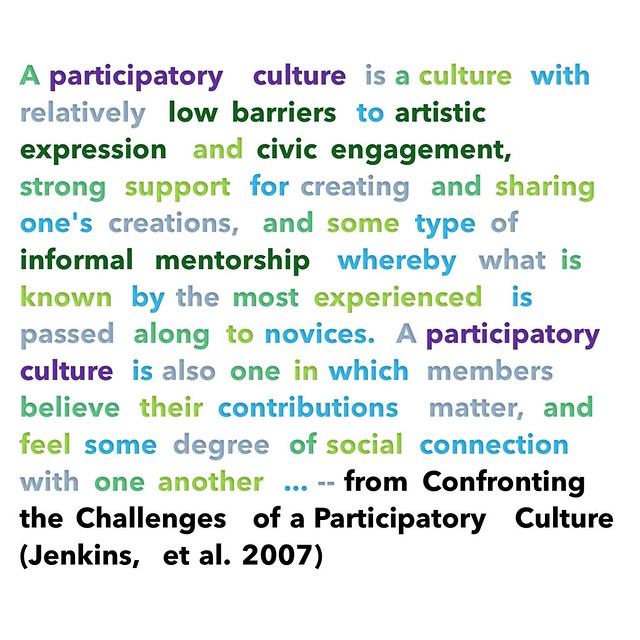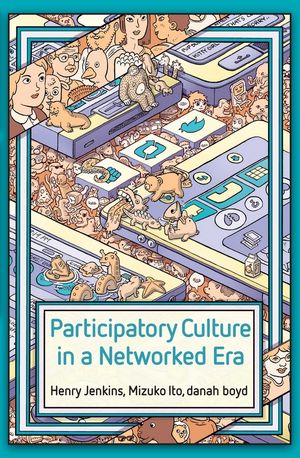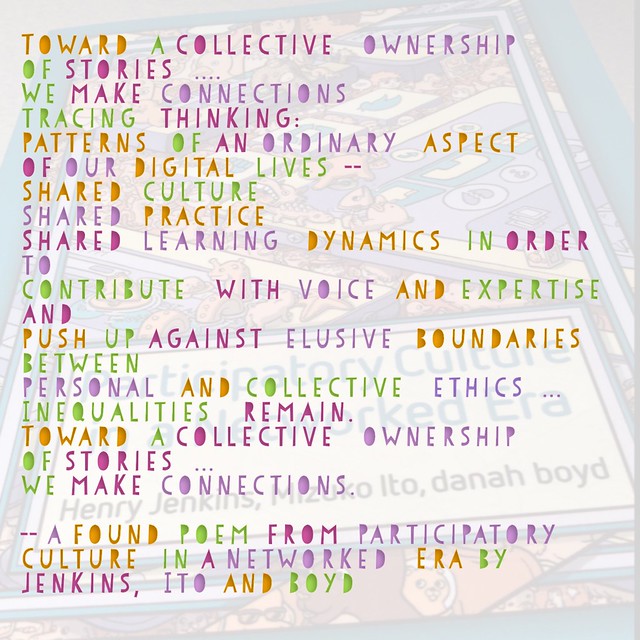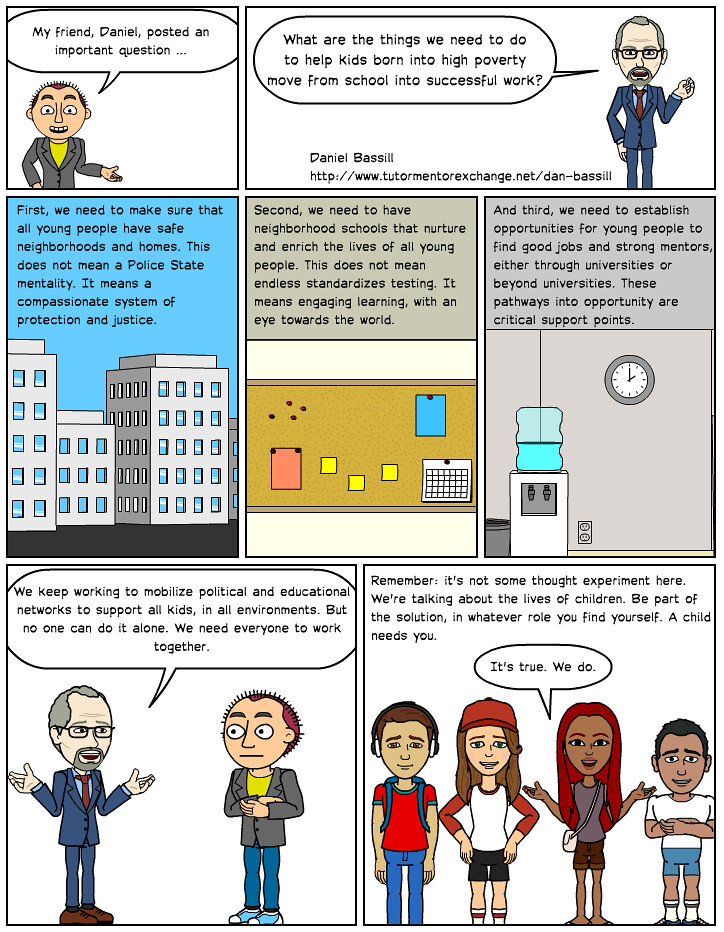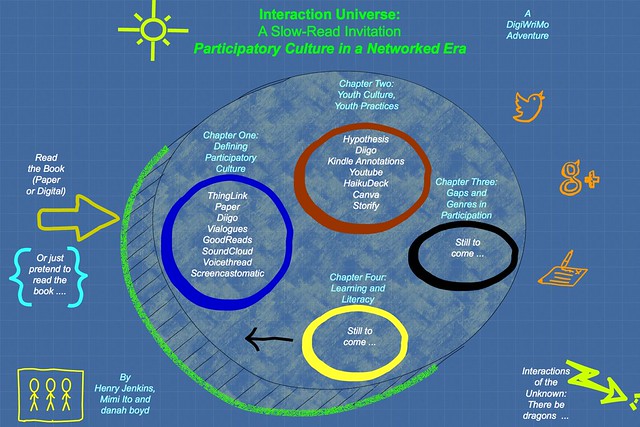
There has not been a whole ton of interacting itself for our slow-read book talk on Participatory Culture in a Networked Era. Folks are still getting the book, or recovering from the holidays, or just plain ol’ busy in their lives. But that hasn’t stopped Terry Elliott and myself (mostly Terry) from trying to encourage open participation along many different sites and technology platforms.
Mostly, this is because no single experience captures the kinds of participatory activity we envision for a book talk. But also, this is because exploration and dispersion of ideas is part of the experience itself. We don’t want ideas confined to one space.
The chart above is my attempt to keep track of it all, and I am sure I have missed bits of it. I know, and I hope, there are discussions unfolding outside our field of vision. There be dragons …
But there is the danger of too much dispersion of interaction, too, and the worry is that all will be lost in the haze of connections. Or, that someone entering now will think, I’ve missed it all and don’t know where to begin. We can say “there is no fixed beginning point” all we want, but we need to show that and keep the invitations open. Terry is working on a place where links to all of these discussions can be had for anyone just entering the discussions or interested in what’s going on.
What I realized as I was putting the chart together is that it is not easy to keep something like a slow-read book talk moving forward over weeks and months time. Momentum gets lost rather quickly. Maybe our aim to build a participatory culture experience around a book about participatory culture ideas won’t quite work. If all of the energy falls to the organizers, is it truly participatory? Don’t know. Prob not. What you get then is a small book group or conversation, not a participatory experience.
It’s worth trying, though. It’s always worth trying.
Me? I aim to keep reading and reflecting on it all, as best as I can. I am finding the book useful and the authors interesting, and I look forward to what others are noting and observing.
You’re invited, too. Of course, you are invited.
We’re on Twitter with the #digiwrimo hashtag. And in the Digital Writing Month Google Plus community. Folks are annotating with the Kindle app in Amazon. Goodreads is another place for notes and reactions (here are my notes). Blogs are another means of book talk writing. Heck, send notes as smoke signals. We’ll find a way to see them and connect.
Peace (in the chart),
Kevin
